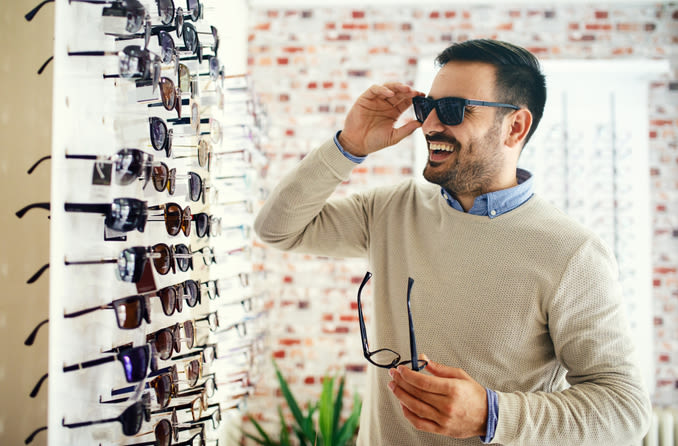Buying Sunglasses is more than just a fashion statement; they are essential to protect your eyes.
Without these sunglasses, UV rays can damage the lens and cornea of the eye, leading to cataracts and skin cancer of the delicate tissues around the eye.
When outdoors on a sunny day, the sun’s harmful rays can damage the surface of the eyes and increase the risk of eye disease.
Labelling and criteria for UV protection are not mandatory. Instead, it’s an option. So unless you understand the optical terminology for lenses or don’t know exactly what to look for, it can be confusing when choosing trendy sunglasses to protect your eyes. When doing so, remember some basic things to ensure you have the protection you need.
Sunglasses are essential to your wardrobe, but sunglasses have several functions. Eye Doctors in Dubai have suggested a checklist for buying sunglasses.
Here are three simple things to consider when choosing glasses to make an informed decision:
UV protection
Ideal sunglasses should provide 100% protection from both UV-A and UV-B rays. UV-B is considered harmful to the skin and eyes, but eye specialists recommend avoiding both types of light. The lens should also block UV wavelengths up to 400 nanometers.
Damaged protective coatings can allow UV rays to pass through, so scratched UV protective sunglasses should be replaced or repaired. UV protection is especially important for children and young people.
Size
Larger frames cover more face areas, providing more skin and eye protection. Sunglasses with wraparound lenses help block side rays. Properly fitting glasses are one of the most important aspects of buying sunglasses.
The bigger the sunglasses, the less the sun’s rays damage your eyes. So when buying sunglasses online, look for your sunglasses size. Choose oversized goggles. This minimizes the number of UV rays that enter your eyes, making your sunglasses safer.
Quality
Dark lenses without UV protection block visible light and dilate your pupils. Without UV protection, dilated pupils can allow more harmful UV rays to enter your eyes, even if you feel protected. Polarized sunglasses offer the best UV protection, blocking all horizontal UV rays.
The Ophthalmologist in Dubai suggested that lens quality and tint are very important. Look for uniform shades, not dark colors. You can hold the glasses at arm’s length and look straight through the lens from a distance to see defects such as door edges. Then, slowly move the glass along the line. No lens is perfect if the straight edge is bent, warped, wobbly, or driving.
Various other factors to consider while buying sunglasses are:
- Make sure they can block enough light
- Choose oversized sunglasses
- Check lens quality
- Check lens color
- Cost is never a factor
- Lifestyle
- Face shape
Other features
Many features can be added to sunglasses. In addition to basic UV protection, you can choose excellent filters and coatings for your lenses. These often offer better visual quality and better eye protection. First, you need to determine which special features better suit your needs. You can think of these as different “bonuses” that you can choose from when purchasing sunglasses.
When sunlight reflects off smooth surfaces such as water or sidewalks, polarized sunglasses can help reduce the reflected glare.
In conclusion, sunglasses are essential accessories that protect your eyes from the sun and enhance your everyday look and outfit. For this reason, people often value aesthetics over functionality when purchasing sunglasses. Looks and style are, without a doubt, just as important as protection when choosing sunglasses. Still, we recommend always considering the abovementioned factors to ensure both aspects are checked!
Be sure to check the sticker showing the UV cut rate of the lens. Choose lenses with 100% UV-A and UV-B protection, with additional coatings and filters as needed. If you have any questions or concerns about your eyes or sunglasses, visit your nearest eye care clinic for professional advice and treatment.
